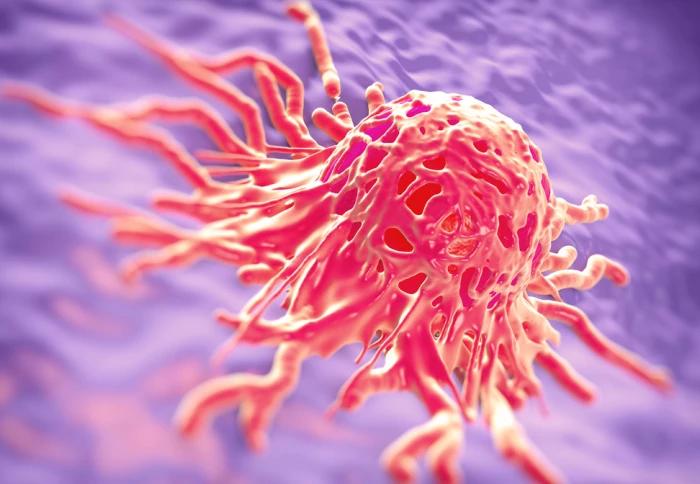Cervical cancer can have no obvious signs or symptoms, particularly in its early stages. As a leading cause of cancer-related deaths among women worldwide, understanding the signs of cervical cancer symptoms is important. This guide aims to shed light on the symptoms of cervical cancer, empowering you to recognise the warning signs and take proactive steps towards early detection and treatment.
The early stages
In the initial phases of cervical cancer, the disease may not present any noticeable symptoms at all, making adhering to regular screening guidelines crucial. The cervix, the lower part of the uterus, is where this cancer takes root, and the transformation from normal cells to precancerous and ultimately cancerous ones can occur gradually over time.
The importance of routine checkups
Regular gynaecological examinations, including Pap tests and HPV screenings, are the core of early cervical cancer detection. These screening tools can identify abnormal cell changes long before they progress to full-blown cancer, allowing for timely intervention and treatment. By prioritising these routine checkups, individuals can catch any potential issues in their earliest, most treatable stages.
Recognising the subtle signs
As cervical cancer advances, some individuals may begin to experience subtle changes that could signal the presence of the disease. These can include:
- Unusual vaginal bleeding, such as bleeding after intercourse, between menstrual periods, or after menopause
- Changes in vaginal discharge, which may become watery, bloody, or have an unpleasant odour
- Discomfort or pain during sexual intercourse
While these symptoms can have various underlying causes, it is crucial to seek medical attention promptly to rule out cervical cancer or address any underlying issues.
The progression of symptoms
As cervical cancer progresses, the symptoms can become more pronounced and intrusive, affecting an individual’s overall well-being and quality of life.
Advanced stages and symptom manifestation
In the more advanced stages of cervical cancer, individuals may experience a range of symptoms that indicate the disease has spread to nearby tissues or organs. These can include:
- Difficulty or pain when urinating
- Rectal bleeding or pain during bowel movements
- Pelvic pain or discomfort
- Swelling in the legs
- Fatigue, weight loss, and a general sense of illness
These symptoms can be debilitating and require prompt medical attention to manage the disease effectively.
The importance of early detection
Catching cervical cancer in its earliest stages is important for successful treatment. When detected and addressed early, cervical cancer is highly treatable, with a five-year survival rate exceeding 90% for localised disease. On the other hand, if the cancer progresses, the prognosis becomes more guarded, underscoring the vital importance of regular screening and prompt action when symptoms arise.
Diagnosis
Recognising the signs and symptoms of cervical cancer is the first step, but the journey towards a definitive diagnosis involves a comprehensive medical evaluation.
Pap tests and HPV screenings
Pap tests, also known as Pap smears, and HPV (human papillomavirus) screenings are the primary tools used to detect cervical abnormalities. These tests involve the collection of cell samples from the cervix, which are then analysed for any irregularities or the presence of high-risk HPV strains that are linked to cervical cancer development.
Diagnostic procedures
Suppose the initial screening tests indicate the presence of abnormal cells or a potential cancer diagnosis. In that case, healthcare providers may recommend additional diagnostic procedures, such as colposcopy, punch biopsy, or endocervical curettage. These specialised tests allow for a more detailed examination of the cervix and the collection of tissue samples for further analysis.
Staging and comprehensive assessment
Once a cervical cancer diagnosis is confirmed, the healthcare team will work to determine the stage of the disease, which is crucial for guiding the most appropriate treatment approach. This staging process may involve imaging tests, such as CT scans or MRI, to assess the extent of the cancer’s spread.
Treatment considerations
The treatment plan for cervical cancer is tailored to the individual’s specific circumstances, taking into account factors like the stage of the disease, the patient’s age, overall health, and personal preferences.
Surgical interventions
For early-stage cervical cancer, surgical options may be the primary course of action. These can include procedures like laser surgery, cryosurgery, cone biopsy, or various types of hysterectomy (the removal of the uterus and potentially other reproductive organs).
Radiation and chemotherapy
In cases where the cancer has progressed or is more advanced, a combination of radiation therapy and chemotherapy may be the recommended treatment approach. Radiation therapy uses high-energy beams to target and destroy cancer cells, while chemotherapy utilises anti-cancer drugs that circulate throughout the body.
Drugs used in cervical cancer include Alymsys (Bevacizumab), Avastin (Bevacizumab), Bevacizumab, Bleomycin Sulfate.
Targeted and immunotherapeutic approaches
Emerging treatment options, such as targeted therapy and immunotherapy, are also being explored for cervical cancer management. These innovative approaches aim to use the power of the body’s immune system or target specific molecular pathways that drive cancer cell growth and multiplying.
Coping and supportive care
Navigating the challenges of cervical cancer can be overwhelming, both physically and emotionally. Comprehensive support and resources are available to help individuals and their loved ones throughout the journey.
Emotional and psychological support
The emotional impact of a cervical cancer diagnosis cannot be overstated. Seeking counselling, joining support groups, and engaging in stress-management techniques can be invaluable in coping with the psychological and psychosocial aspects of the disease.
Addressing practical concerns
Cervical cancer can also present practical challenges, such as managing treatment-related side effects, maintaining financial stability, and balancing work and family responsibilities. Healthcare providers, social workers, and community resources can offer guidance and assistance in addressing these practical concerns.
Embracing a holistic approach
A holistic approach to cervical cancer management, which encompasses physical, emotional, and social well-being, can help individuals navigate the complexities of the disease. This may involve integrating complementary therapies, such as nutrition, exercise, and mind-body practices, into the overall treatment plan.
Prevention and early detection
The key to effectively combating cervical cancer lies in preventive measures and early detection. By understanding the risk factors and taking proactive steps, individuals can significantly reduce their chances of developing this devastating disease.
Vaccination and screening
The HPV vaccine, which protects against the human papillomavirus strains most commonly linked to cervical cancer, is a powerful tool in prevention. Additionally, regular Pap tests and HPV testing are essential for early detection and timely intervention.
Lifestyle modifications and risk reduction
Adopting healthy lifestyle habits, such as practising safe sex, quitting smoking, and maintaining a robust immune system, can also contribute to reducing the risk of cervical cancer.
Empowering through education and awareness
Empowering individuals with education and awareness about cervical cancer symptoms, risk factors, and prevention strategies is important. By equipping people with this knowledge, they can make informed decisions about their health and request necessary screening and early detection measures.
Conclusion
Cervical cancer is a disease that can be effectively managed and in many cases, prevented. By understanding cervical cancer symptoms, embracing regular screening, and taking proactive steps towards prevention, individuals can take control of their health and significantly improve their chances of early detection and successful treatment.
Sources
- Cervical cancer – Symptoms and causes – Mayo Clinic
- Cervical Cancer Symptoms – Signs of Cervical Cancer – American Cancer Society
- Symptoms of cervical cancer – NHS
- Cervical Cancer: Causes, Symptoms, Diagnosis & Treatment
Medical Disclaimer
NowPatient has taken all reasonable steps to ensure that all material is factually accurate, complete, and current. However, the knowledge and experience of a qualified healthcare professional should always be sought after instead of using the information on this page. Before taking any drug, you should always speak to your doctor or another qualified healthcare provider.
The information provided here about medications is subject to change and is not meant to include all uses, precautions, warnings, directions, drug interactions, allergic reactions, or negative effects. The absence of warnings or other information for a particular medication does not imply that the medication or medication combination is appropriate for all patients or for all possible purposes.









